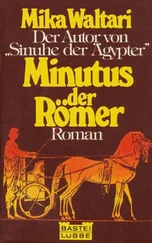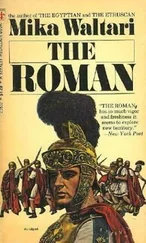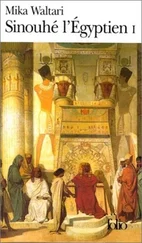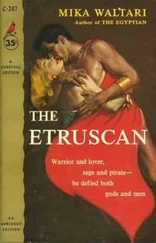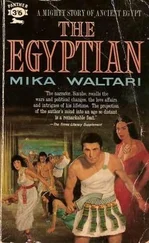As I came to know them better I was astonished at their daring, for they did not hesitate to compose biting epigrams on the Grand Vizier’s vanity, the haughty silence of the Sultan, and the various errors of which other noted men were guilty. They even wrote ambiguous verses about the laws of the Koran. The Persian art of versifying they held to be supreme and many of them were diligent in translating Persian poems into the Turkish language. They trimmed and polished their works as a jeweler polishes stones, and when they hit on some new or startling piece of imagery they rejoiced as if they had found a treasure. Yet I could not take their skilled game as seriously as they did. To them the composition of a poem seemed as admirable and important as the conquest of a kingdom or a voyage into the unknown world; they even claimed that in the golden pages of history the names of bards would outlive those of eminent generals and learned interpreters of the Koran.
Their chief merit was never to be wearisome. Caring little for this world’s goods they could sprinkle their ragged cloaks with the gold dust of fantasy, and though ever willing to compose eulogies to order for the rich and powerful, yet the pleasure of the work was of greater value to them than rich reward, and if they hit upon some happy witticism at their patron’s expense they would rather forfeit his fee than omit the jest.
The friendship of these curiously free men came to me at a fortunate moment, for I was still unduly complacent over my position, my house, my riches, and my worldly success. It was good for me to hear their acid comments on jeweled girdles, plumed turbans, and silver-mounted saddles. A bright flower or a scarlet fish swimming through crystal water was for them as breath taking a sight as any diamond. When I attempted to explain that diamonds had other merits besides beauty, the poet Baki, who neglected both ablution and prayer, drew the corner of his mantle over his dusty feet and said, “Man possesses nothing. In the end it is rather things that possess man. The only true value of a diamond is the beauty hidden within it, and beautiful things can enslave as easily as ugly ones. Wiser therefore to love a tulip-cheeked girl from a distance, for to possess her may be to become her slave and lose one’s freedom, and loss of freedom is a slow death.”
Giulia could not understand what pleasure I could take in the company of these disreputable men, from among whom I very carefully chose a few whom I could count on as my friends. She spent many of her days and nights at the Seraglio and I was not inquisitive. Unknown to her I was preparing for the hour when the Sultan and the Grand Vizier would visit my house in disguise to pass the evening in the company of poets and wits, as they had been wont to do in Master Gritti’s house.
Sometime after this the Sultan was assailed by one of his heavy fits of melancholy, and the Grand Vizier sent me an agreed signal. Late the same evening there came a sound of knocking at my gate and two slightly inebriated men, their faces hidden under a fold of their kaftans, stepped inside declaiming verses to the porter. They were of course attended by a number of guards, but these together with two deaf-mutes remained outside the house. No greater proof of Ibrahim ’sconfidence could have been given me. I led my visitors into the house, where they sat down somewhat apart to sip wine and listen to a learned dervish who was just then reading aloud his translation of a Persian poem.
But the others were too shrewd to be taken in by the newcomers and soon perceived that these were no ordinary guests. It would have been insulting if they had not, for Ibrahim rightly considered himself the finest-looking man in the Ottoman Empire, while Sultan Suleiman was equally assured that his own demeanor betrayed him for the nobleman he was, despite the mask he held before his face. But my guests had sense enough to feign ignorance. At his request they addressed the Sultan as Muhub the poet, and pressed him eagerly to read aloud his verses. He demurred for some time, but at length drew out a roll of paper covered with beautiful script and read from it in a musical voice. His hands shook as he did so, for he believed himself unrecognized and knew that he was in the presence of the foremost experts in the city. It was evident that he feared their candid criticism. So far as I could judge his work had no other fault than a slight verbosity, a slight monotony, and a slight touch of the commonplace, at least in comparison with Baki’s allusive, whimsical style.
His hearers expressed courteous appreciation, but no more, their self- respect as poets not permitting them to fawn even on the Sultan where their art was concerned. They raised their goblets to Muhub and praised him until a frank smile of delight overspread the Sultan’s pallid face. But Baki, the young and unabashed, added, “With a liberal hand Muhub the poet has cast pearls and gold before us, and to listen now to anything inferior would be most unbecoming. But if anyone of uscan play an instrument we might in that manner venture to compete further with the incomparable Muhub.”
I fancy that all he meant by this flowery speech was that he could bear no more of the Sultan’s stilted poems and hoped that Ibrahim would pick up his famous violin. It was not to be expected, however, that Suleiman should catch the fine irony of Baki’s remark. He eagerly assented and begged Ibrahim to play. None of us had reason to regret it, for when Ibrahim, having first drunk a little wine, filled the room with his marvelous music, all the passion, joy, and longing of our fleeting lives sang to us in every cadence, until I trembled and could not restrain my tears. Even Baki wept aloud.
I need speak no more of that night. It passed away in a sedate and seemly manner, and when the guests became unduly drunk the Grand Vizier took his violin again to quieten them with his playing. No one fell asleep but Muxad-tseleb, who indeed understood little of music. The rest of us were in the gayest possible mood, and when the stars began to pale we carried Murad -tseleb out and dropped him into the fishpond to sober him, Baki holding his head above water by the beard. The keeper of the fish, roused by the shouts and splashings, dashed from his hut in only his loincloth, to throw stones and curse us with the wild curses of his homeland, until we took to our heels and lost our slippers in the flower beds. Muhub the poet even lost his turban, and laughed until the tears ran down his cheeks.
But now in the gray light of dawn the mutes grew uneasy at their lord’s long absence and knocked upon the door. At the sight of these two dark-skinned giants we turned suddenly very sober, as if under a cold shower. Still breathless from the chase and soiled with earth from the flower beds, Muhub the poet scrambled into his carrying chair, and with great difficulty dragged the Grand Vizier in beside him.
Sultan Suleiman visited my home about a dozen times, and met there not only poets and wise dervishes but also French and Spanish sea captains and well-informed adventurers, most of whom had not the slightest idea who he was. In the presence of foreigners and unbelievers he remained silently in the shadows and was content to listen carefully to what they had to say, putting in a question from time to time about life and conditions in European countries.
Thus it was that I came to know Sultan Suleiman, called by Christians the Magnificent, though his own people named him merely the Lawgiver. No one is a prophet in his own country. And the better I knew him, the less he charmed me; the melancholy that held him prisoner made him wearisome company. With all his faults Ibrahim remained a man among men, whereas the Sultan withdrew himself into his secret solitude, seemingly as remote from his fellow creatures as heaven is from earth.
Читать дальше

